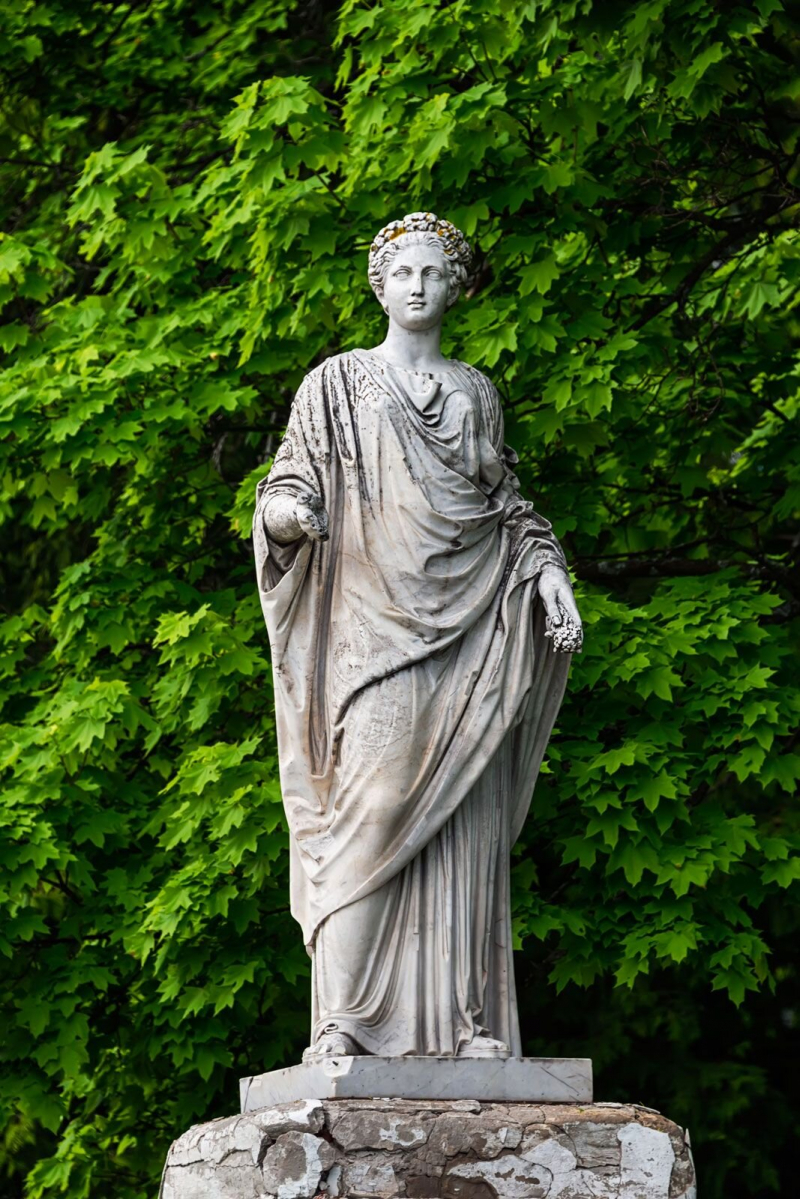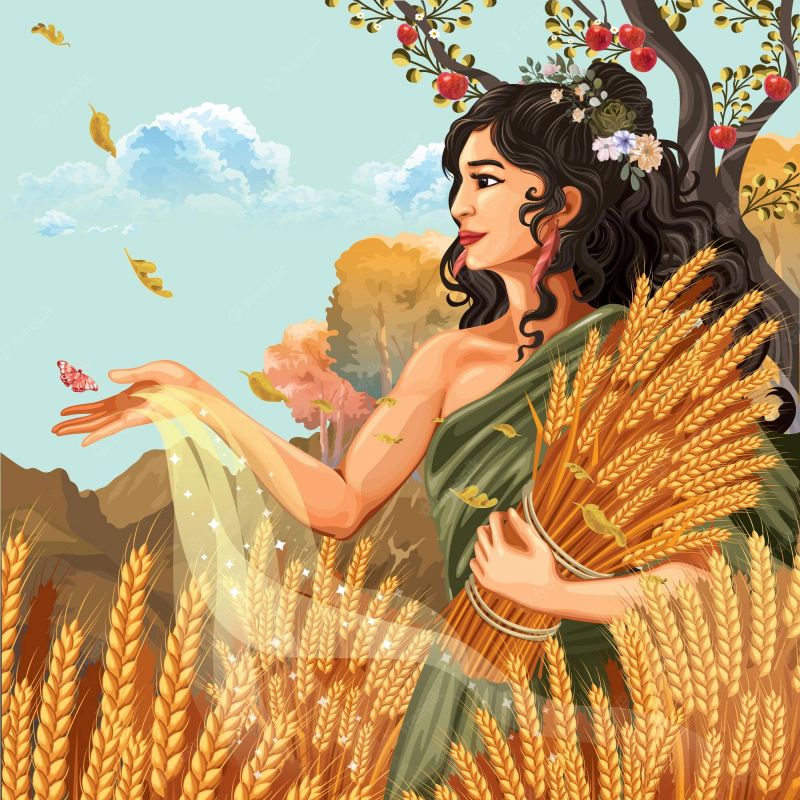Demeter

Kronos and Rhea, two renowned Titans, were the parents of Demeter. She was accorded considerable significance in ancient Greek mythology since she was the goddess of harvest and grain. This involved feeding and fostering the development of both the planet and mankind, in addition to agriculture and the harvest. Due to her cautious and humble manner, the goddess quickly won the respect and sympathy of the other Olympian gods. Her personality called for a unique approach, unique understanding, and unique respect. One of the strictest and most snooty deities was Demeter. She was one of the original Olympian gods, although she chose a different route than other Olympians of her time. She visited the temples that had been built in her honor by her devotees because she would not be limited to the regions of Mount Olympus. She was dependent on people who adored her and lived close by.
Since Demeter possessed the ability to provide mortals abundant harvests and generate the seasons that were conducive to crop sowing, she has always enjoyed a sizable following among them. However, after Hades kidnapped and sent her beloved daughter Persephone to the underworld, she descended into a condition of profound melancholy and despair, which caused the plants to wither and die. Since then, whenever Persephone would depart for the underworld, the mortal world would experience winter. Persephone's return to Demeter would usher in spring.











